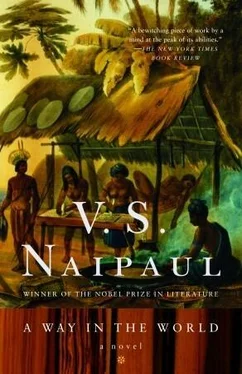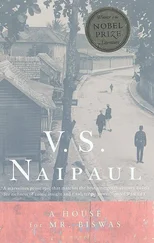His reply was swift. It began: “I have looked at your new book. You have passed a stool. It is far prettier than Alan Sillitoe’s and those of recent young eminences …”
I stopped reading, though his letter, typewritten, was long, as long as the one he had written six years before. I stopped reading, unwilling to allow any further word to fix itself on my consciousness, just as I might have stopped reading a poison-pen letter, one of those that came in small brown envelopes and were written on lined paper in a narrow’ cramped hand.
I felt a fool to have sent the book to him. That was all. I felt no disappointment, no doubt, no rage; only something like relief, relief that I could set this disciple-guru relationship aside.
But his letter had to be acknowledged. I wrote to his suburban address, saying that I was sorry he felt as he did, but that the book was still new enough for him to sell to Gaston. Gaston was a bookseller in Chancery Lane. He dealt mainly with libraries, and was a kind of patron of book reviewers. The basis of this reputation in the late fifties was that from known reviewers he bought any new book, regardless of its subject, publisher or saleability, for half the published price.
It seemed a light enough reply, what I wrote about Gaston, but Foster Morris didn’t like it. Like Lebrun in Trinidad in 1937, I had touched a nerve. He wrote to say that he was getting by; he didn’t need Gaston. That, I thought, was the end of it. But two weeks later he wrote again. He had bought a ticket for a big dinner of some literary association. Now he found he couldn’t go, and he didn’t like the idea of wasting the ticket. Would I like it? If I did, I should telephone him at a particular number at a certain time.
I telephoned. I said I would like to go to the dinner. I did so to let him know that I was indifferent to his abuse. On the telephone we talked only of the literary group. He said, in his beautiful, old-fashioned voice, that it was going to be very dull, full of suburban lion-hunters, but it might amuse me. It was as though his letter had been an aberration; that we were as we had been at the lunch. Then right at the end, before he put the phone down, he said, “I don’t like the idea of you being out of pocket.”
The dinner card came, creased, smudged, as though it had been for some time in the fluff of a jacket pocket.
Three or four days before the dinner I recognized the hand of Foster Morris in an anonymous review of my book. He had gone out of his way to make signals to me, to show his own knowledge of the background, his own attitude to the background. The review was full of abuse of the people I wrote about. To attempt comedy or profundity or universality about such people was absurd, the reviewer said; they were people of the estate barracks, living off the smell of an oil rag, sunk in superstition, without an intellectual life, without nobility or potential. This was the abuse of colonial days, the opposite of the attitude (and originality) of The Shadowed Livery. It took me back to the bad moment in the BBC lobby when he had asked me about the white-nigger man.
I treated this review as I had treated his earlier letter. I didn’t read it to the end. But I went to the dinner. I went because I had said I would go; also, a little, for the experience. But I went mainly because I didn’t want him to think I was cast down by what he said about my book.
So I went with his card and sat in the place marked with his name. The occasion was as dull as he had said it would be. I sat next to a middle-aged woman who was there because she had written a textbook of some sort. She was disappointed in me, too. This woman was obsessed with her family; that was where her mind and heart were, rather than at the dinner. We didn’t make much connected conversation. When I stood up to go I saw that I had sat all evening with my trouser zip undone.
That was how my brush with Foster Morris ended. Then I realized that I hadn’t needed to go to the dinner at all.
AN ANTHOLOGY (aimed at schools and universities) of contemporary criticism of the great nineteenth-century European novels, a Patrick Hamilton-like novel about Gerard’s Cross that didn’t get into paperback and sank, a scattering of small reviews — this was all that I noted about Foster Morris over the next five or six years. He was in his sixties now; there were fewer reminders of him. He became part of the past for me.
At the end of 1967 I went to Antibes to interview Graham Greene for a London paper. The meetings with the writer were spread over two days. At one stage Greene talked of writers he had followed but who had then stopped writing or faded away. There were three such writers. Two were young; I had reviewed their work; they had tried to write Graham Greene novels.
The third writer was Foster Morris. Just after the war he had published a novel that Greene thought was much better than his own England Made Me, published a few years before the war. The Foster Morris book was there on the shelves in Greene’s flat, part of his great collection.
He took the book down and read without talking for a minute or two, with the expression of a man who was finding that memory had played him false. He said, as though addressing Foster Morris rather than me, “You see, you see.” And he read out a sentence from the Morris book: “The Easter drizzle persisted like remorse.”
“Actually,” he said later, “he was a prodigy. At Oxford we thought him among the best. He was at Oxford when he was writing Seedtime.”
The famous book was on the shelves. Greene took it down and showed it to me. Its yellow cloth binding had faded now to a very pale primrose.
“The title seems tame now, but I loved it. It was full of meaning, full of ironies. It was from the Wordsworth line in The Prelude, ‘Fair seed-time had my soul.’
“It was a running-away book. I cannot tell you how original and good it felt to us at the time. Foster ran away from his school for almost a whole term when he was sixteen. He used all his school money and survived quite well. He ran away as a protest against the school and his family. His family ran a small engineering firm in the Midlands. Seedtime was about that running away, the people he met, the poverty he saw, his sexual awakening.
“Foster made the notes during the two months, but he didn’t write the book until he was at Oxford. He was an adult when he wrote, but still very young, and I suppose that gave the book some of its quality. It was precocious and knowing, and technically quite skilled, yet you have to say that it was also innocent. It was full of echoes that Foster didn’t know about. It felt very original, but of course running away is one of the great themes of literature. Huckleberry Finn, David Copperfield running away to Betsey Trotwood, Smike running away from Squeers, De Quincey. Foster said the only name that came to him, half-way through, was W. H. Davies, the super-tramp man. In some ways his book anticipated Orwell and that American book, Catcher in the Rye.
“It sold eight thousand copies, a prodigious number in those days. It was famous for ten years — Connolly’s limit, you know. They keep on trying to revive it, but it doesn’t work now. The sexual awakening bit is silly, and the protest parts are very old-fashioned, a little bit like The Way of All Flesh. That’s the trouble with precocious things. They really belong to the earlier generation.
“You might say Foster never recovered from that success. He floundered. If he hadn’t had that family firm to fall back on, he might have had to take a job, like the rest of us. But he had that little income. It wasn’t a great deal, but it was there. So he kept on at the writing. He was always looking for another piece of luck, that happy landing on a subject. He tried his hand at many other things. He did the Forster personal relationships, though no one knows what that means; he did the Marxist thing; he tried to do the Catholic thing. He tried to do the Auden and Isherwood travel book, but I always thought that Trinidad book was a lazy piece of work. Then he wrote that novel after the war, and I thought he had found his feet. I was wrong.”
Читать дальше












